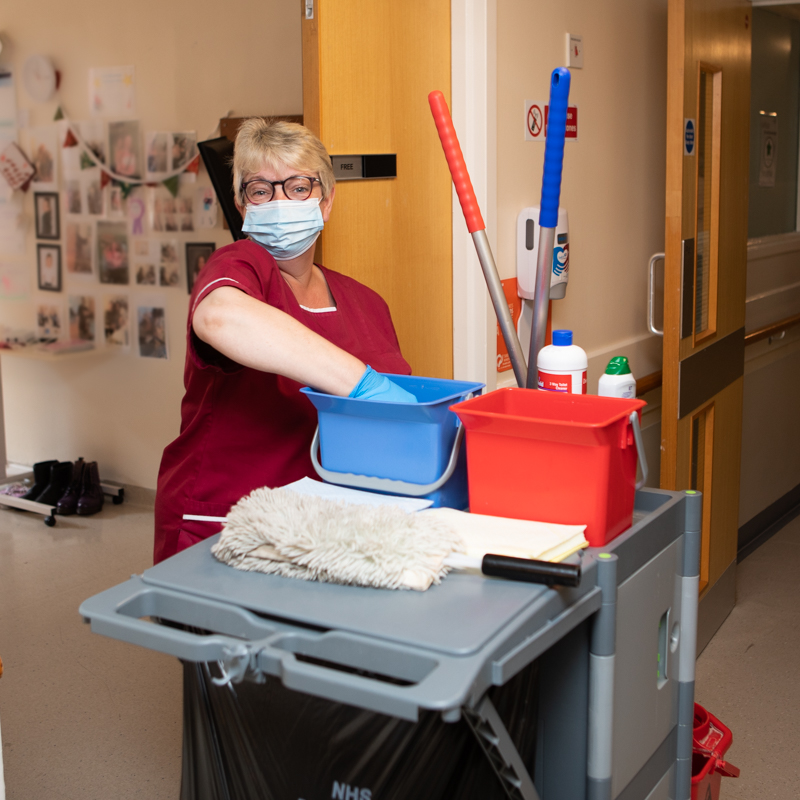We take the prevention and control of infection very seriously. All wards and departments have infection control link workers and our cleaning staff aim for the highest standards of cleanliness.

Our infection prevention and control team carry out regular audits and uphold strict hygiene standards.
Hand hygiene
Cleaning your hands is one of the simplest, cheapest and most effective ways to prevent bacteria (germs) being passed from person to person. A third of infections are preventable and our hospital wards and clinical areas have alcohol hand gel dispensers available for staff and visitors to use to prevent the spread of infections.
All hospital staff, patients and visitors should clean their hands on a regular basis and especially:
- After visiting the toilet or using a commode
- Before eating or handling food
- If your hands are dirty
- Before visiting a patient and again before leaving the ward
- All staff should clean their hands if they have direct contact with you.
Help us to reduce hospital acquired infections
Do these things
- Clean your hands before entering and upon leaving the ward or place of care
- Strictly adhere to visiting times and to the numbers of visitors allowed
- Limit the amount of items brought into the hospital that can cause clutter and make cleaning of the ward difficult
- Follow our advice if you need to take patient clothing home to be laundered
- Talk to the nurse/midwife in charge or ask to see the matron/senior nurse/clinical leader if you have concerns about the cleanliness of the environment
Do not do these things
- Visit if you are feeling unwell or have an infection
- Touch your relative’s/friend’s wound or any devices such as drips or catheters.
- Sit on the bed or use the patients’ toilets
How we are doing
Our infection rates are steadily improving year-on-year, thanks to the efforts of our dedicated infection prevention control team, our staff and our patients and visitors. Each financial year the Department of Health sets us targets to achieve in terms of our MRSA and Cdiff rates.
MRSA is an abbreviation that stands for the bacteria (germ) meticillin-resistant staphylococcus aureus. You can read about MRSA symptoms on the NHS website.
Clostridium difficile, or C.diff, is a bacteria that can cause diarrhoea in some circumstances. You can read about C.diff symptoms on the NHS website.
Last financial year there were 24 cases of hospital onset c.difficle.
Our target for 2023/24 is to achieve a level of no more than 20
In the last financial year there was 1 case of hospital onset MRSA.
Our target for 2023/24 is to achieve no cases of MRSA avoidable blood stream infections (bacteraemia).